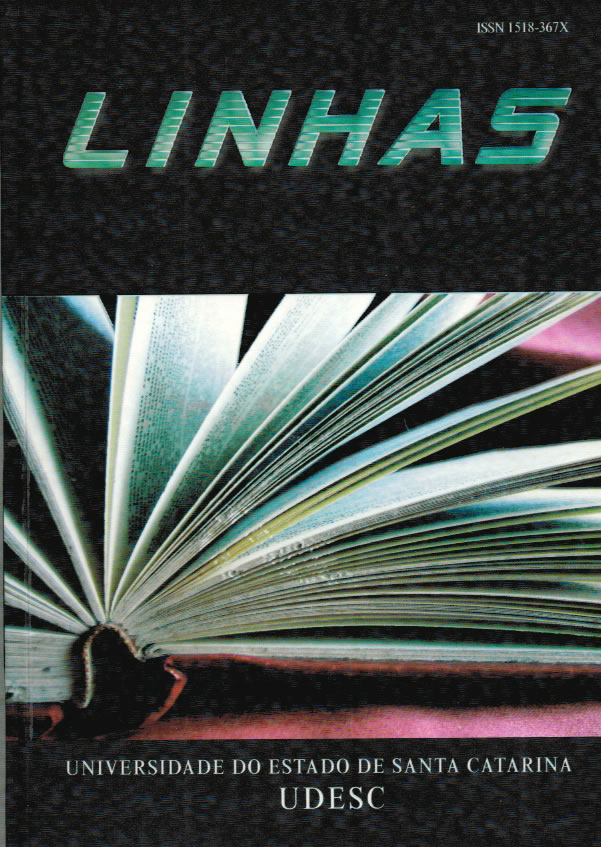Análise dos Parâmetros Curriculares Nacionais para o ensino religioso nas escolas públicas<br>Analysis of National Curricular Standards for religious education in public schools
Abstract
Este trabalho se insere no campo das relações entre educação e religião no Brasil, e mais precisamente, na presença do Ensino Religioso como disciplina nas escolas públicas do país. Excetuando-se o período da instituição da República, o Ensino religioso esteve presente em todo o processo histórico educacional brasileiro. A constatação da criação de uma identidade pedagógica pautada em parâmetros epistemológicos a partir da LDBEN (1996) que permitiu a inclusão dessa disciplina como componente curricular da educação básica originou essa pesquisa, cujo objetivo principal é analisar os “Parâmetros Curriculares Nacionais” propostos para o Ensino Religioso. A pesquisa toma para a análise o documento dos “Parâmetros Curriculares Nacionais para o Ensino Religioso”, no qual se constatou que o modelo proposto não cumpre com os objetivos de isenção proselitista com a qual se comprometeu, porque ainda apresenta visões de mundo particulares o que os evidenciam como uma estratégia para garantir a manutenção dessa disciplina pelo Estado em benefício das Igrejas, especialmente as cristãs. Isso mostra que nunca na história brasileira o Ensino Religioso conseguiu tanto espaço na esfera pública, porque além de ter garantida sua permanência na Constituição de 1988, ainda garantiu pela Lei 9.475/97 o status de disciplina junto às demais constantes do currículo básico nacional. O estudo contribui, dessa forma, trazendo à discussão questões mais abrangentes no campo político e educacional brasileiro sobre a ingerência de instituições privadas na esfera pública, uma vez que agora o Ensino Religioso passou a se constituir uma política pública nacional.
PALAVRAS-CHAVE: Ensino Religioso. Educação Brasileira. Política Pública. Legislação Educacional. Parâmetros Curriculares.
This is a study of the relations between education and religion in Brazil. More precisely, it analyses the presence of Religious Education as a subject in public schools. With the exception of the period of the institution of the Republic, religion classes have been present throughout the entire history of Brazilian education. The creation of a pedagogic identity formed upon epistemological standards established in LDBEN (1996) that allowed the inclusion of this subject as a curricular component of basic education gave rise to this study. The principal objective of the study is to analyze the “National Curricular Standards for Religious Education” in which it was found that the model proposed does not comply with the objectives for impartiality from proselytism to which the Standards are committed, because they present particular visions of the world. The standards reveal themselves to be a strategy to guarantee the maintenance of this subject by the State to the benefit of Churches, especially Christian ones. The study shows that Religious Education has never achieved so much space in the public sphere as it has in recent years because in addition to the fact that its permanence is guaranteed in the Constitution of 1988, Law 9.475/97 also guarantees the status of the subject together with others found in the basic national curriculum. The study contributed to the discussion about a broad range of issues in the Brazilian political and educational field related to the entrance of private institutions in the public sphere, since Religious Education is now a national public policy.
KEY WORDS: Religious Education. Brazilian Education. Public Policy. Educational Legislation. Curricular Standards.
Downloads
Downloads
Published
How to Cite
Issue
Section
License
Os artigos publicados pela revista são de uso gratuito, destinados a aplicações educacionais e não comerciais. Os direitos autorais são todos cedidos à revista. Os artigos cujos autores são identificados representam a expressão do ponto de vista de seus autores e não a posição oficial da Revista Linhas ou do Programa de Pós-Graduação em Educação da Universidade do Estado de Santa Catarina.

A Revista Linhas está licenciada com uma Licença Creative Commons - Atribuição-NãoComercial-SemDerivações 4.0 Internacional.



